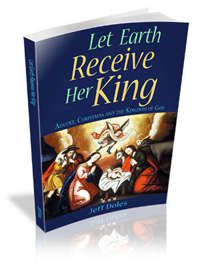How lovely is Your tabernacle,
O LORD of hosts!
My soul longs, yes, even faints
For the courts of the Lord;
My heart and my flesh cry out for the living God.
Even the sparrow has found a home,
And the swallow a nest for herself,
Where she may lay her young —
Even Your altars, O LORD of hosts,
My King and my God.
Blessed are those who dwell in Your house;
They will still be praising You. Selah
(Psalm 84:1-4)
For many years, my habit has been to pray through the book of Psalms each month. There are 150 psalms and 30 days (more or less) in a month, so it works out to through five psalms a day. On the first day of the month, I pray through Psalms 1-5, on the second day, I pray through 6-10 and so on. So, on the 17th of each month, I know I will be praying through Psalm 84. Today is November 17, which is my birthday.
My brother Gary was also born on November 17. See, I was born on his fourth birthday, which I’m sure is not quite what he was expecting as a present that year. It may seem little more than a curiosity that we were born on the same day four years apart, but for me it was always a special bond we shared, a way I saw myself in relation to him. I did not realize just how much I identified with that, however, until last November 17, which turned out to be our last birthday together.
“Did you know that today is our birthday?” I asked the nurse in the ICU, while Gary lay in a coma following a failed brain surgery to remove an aneurysm, and I explained that I was born on his fourth birthday. Although he was unconscious, Gary and I spent our last birthday together.
I’ve explained the connection I feel between the 17th of each month and Psalm 84, and the one I have with my brother and November 17. But now let me say something about the special connection between my brother Gary and Psalm 84, because that is where I look for him now.
Although I am not sure how, Psalm 84 became very significant for Gary in his later life. He identified particularly with the line that says, “Even the sparrow has found a home … even Your altars, O LORD of Hosts.” He wrote a song about this psalm and called it “I Will Be a Sparrow.” Psalm 84 was part of his wedding service when he married his sweetheart, Jan, just a few years ago. And it was, very appropriately, part of his memorial service last December.
From now on, whenever I pray this psalm, I am reminded of my brother Gary, because that is where I know I can find him now. He is in the line about the sparrow, and he has finally found his home. And I find him where it says, “Blessed are those who dwell in Your house; they will still be praising You.
Selah” (v. 4). Gary is experiencing the splendor of the Lord in ways I cannot imagine, and he is ever praising God.
I also find myself in this psalm, in relation to Gary. He is with those who have arrived; I am on the road, still on the journey, and experiencing my pilgrimage (and on some days I feel it more than on others). So there is a section in this psalm for me, too.
Blessed is the man whose strength is in You,
Whose heart is set on pilgrimage
As they pass through the Valley of Baca,
They make it a spring;
The rain also covers it with pools.
They go from strength to strength;
Each one appears before God in Zion.
(Psalm 84:5-7)
Yes, there is a valley of “weeping” (which is what
Baca most likely means), and I have shed my tears. But it is a valley we pass through, not one in which we remain, and the tears somehow become a “wellspring” (one of my brother’s significant words) that yields a blessing
On this pilgrimage to God, we go from strength to strength, although sometimes it may feel like anything but strength. So each one on this journey shall appear before God in Zion. And there I will find my brother, the sparrow.


















.jpg)



